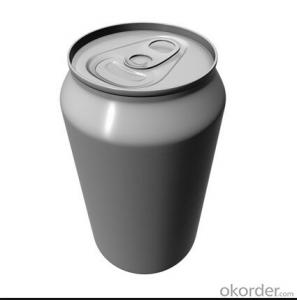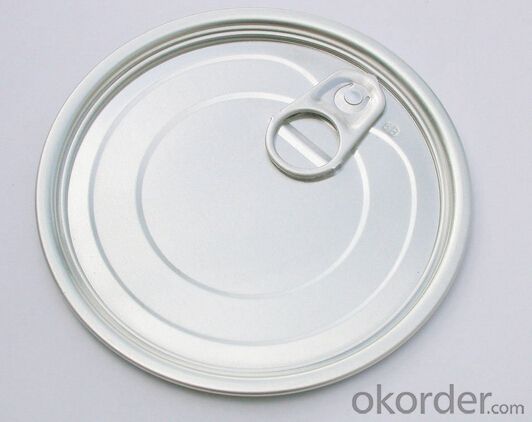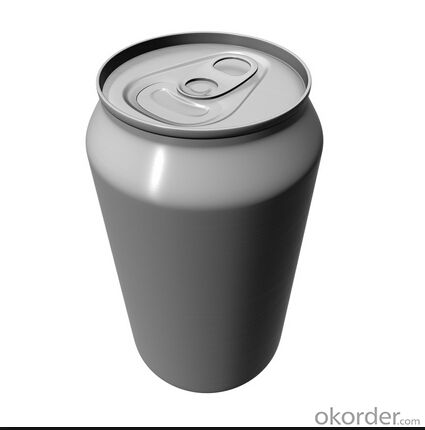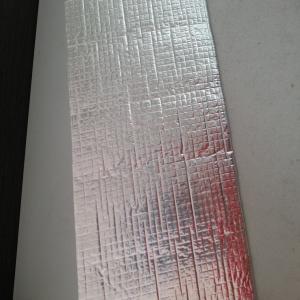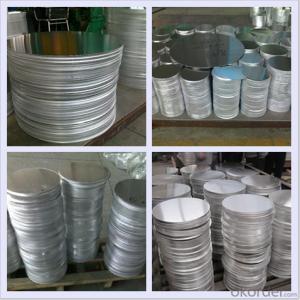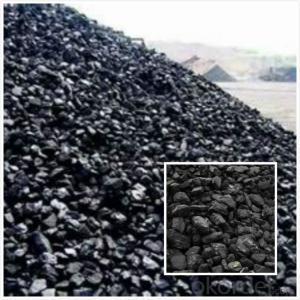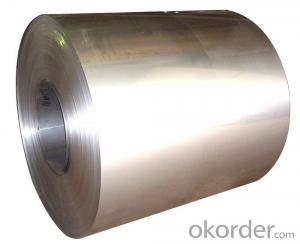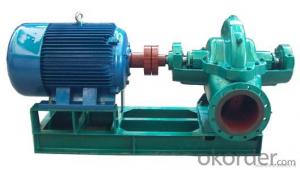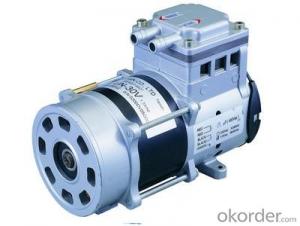Aluminum Beverage Can Made in China with High Quality
- Loading Port:
- Guangzhou
- Payment Terms:
- TT or LC
- Min Order Qty:
- 3710000 pc
- Supply Capability:
- 100000000 pc/month
OKorder Service Pledge
OKorder Financial Service
You Might Also Like
1.Structure of Aluminum Beverage Can Description:
An Aluminum Beverage can is a container for packaging made primarily of aluminum (BrE aluminium).It is commonly used for foods and beverages.Aluminum cans are made of two pieces. The bottom and body are "drawn" or "drawn and ironed" from a flat plate or shallow cup. After filling, the can "end" is sealed onto the top of the can.Aluminum offers greater malleability, resulting in ease of manufacture; this gave rise to the two-piece can, where all but the top of the can is simply stamped out of a single piece of aluminium, rather than laboriously constructed from two pieces of steel. A label is either printed directly on the side of the can or will be glued to the outside of the curved surface, indicating its contents.
2.Main Features of the Aluminum Beverage Can :
1)light weight
2)competitive cost
3)usage of easy-open aluminum ends: no need for a can opener
4)clean appearance
5)aluminum does not rust
3.Aluminum Beverage Can Image:
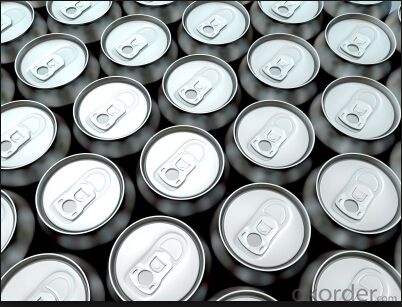
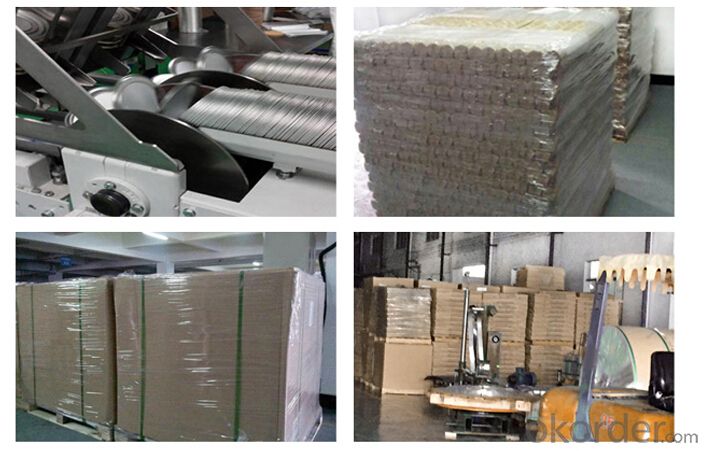
4.Aluminum Beverage Can Specification:
Item No. | 200 # |
Shape/type | Round |
Size(mm) | Dia 50mm |
Coating | Gold inside & Clear outside |
Material | Aluminum |
Pcs/20 GP’ | 3,710,000pcs per 20 GP or Customize packing: as clients’ requests. |
Features | 1.Used for packaging of beverage,such as juice,soda,energy drink,etc. 2.Coating can be according to customer required.
|
5.FAQ:
1)Q: What is the material of your products?
A: The material are mainly tinplate and Aluminium
2)Q: Can you make new mold with customized size I need?
A: YES, We can make mold for you .
3)Q: How does your factory do regarding quality control?
A : Our company has a professional EOE testing and managing team, providing customers with quality and reliable products through strict control of process analysis, implementation of the HACCP system, combined with top testing equipments and specified rational testing standards.
6.Certificate:
1)Top Fortune Global 500
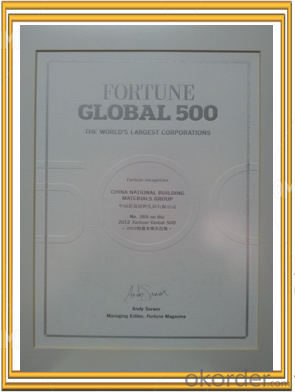
2)SGS Certificate
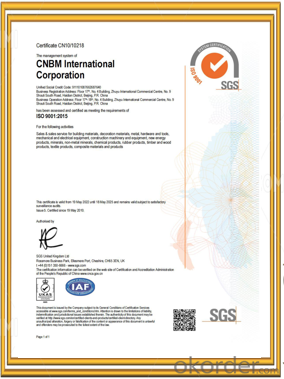
- Q: Can aluminum coils be used in the production of heat exchanger fins?
- Yes, aluminum coils can be used in the production of heat exchanger fins. Aluminum is a popular choice for heat exchanger fins due to its high thermal conductivity, lightweight nature, and corrosion resistance. These properties make it an ideal material for transferring heat efficiently while also ensuring durability and longevity. Aluminum coils can be easily formed into intricate fin shapes, maximizing the surface area for heat exchange. Additionally, aluminum is readily available and cost-effective, making it a preferred choice for heat exchanger fin production in various industries such as HVAC, automotive, and refrigeration.
- Q: so i've been using natural deodorants that don't have aluminum, but they only work for a little while. i've heard that aluminum may cause Alzheimer's, and i have a history of Alzheimer's. do you know of any web sights that can confirm/deny this? or if you know of any deodorants that work really well that don't have aluminum! this is really getting annoying
- it depends. in some people it is and others it is not. when you wear deodorant, the aluminum goes into your blood stream. just think about that
- Q: Are aluminum coils compatible with different welding methods?
- Yes, aluminum coils are compatible with different welding methods such as MIG (Metal Inert Gas) welding, TIG (Tungsten Inert Gas) welding, and even resistance spot welding. These methods can be used to join aluminum coils effectively and efficiently.
- Q: What are the different mechanical properties of aluminum coils?
- Aluminum coils are highly sought after for a variety of uses due to their diverse mechanical properties. Some key properties of aluminum coils include: 1. Strong: Aluminum coils are impressively strong, making them suitable for structural purposes. Their strength can be further enhanced through alloying or heat treatment processes. 2. Flexible: Aluminum coils are highly malleable, allowing for easy shaping and forming. This property enables the creation of intricate designs and complex shapes without compromising the integrity of the material. 3. Lightweight: Aluminum is known for its low density, making it one of the lightest metals available. This characteristic makes aluminum coils ideal for industries like aerospace and automotive, where weight reduction is crucial. 4. Resistant to corrosion: Aluminum naturally resists corrosion, forming a protective oxide layer that prevents further oxidation. This quality makes aluminum coils suitable for outdoor and marine environments, as they can withstand harsh conditions and require minimal maintenance. 5. Good conductivity: Aluminum is an excellent conductor of both heat and electricity. This characteristic makes aluminum coils ideal for applications that require efficient heat transfer, such as in heat exchangers and electrical wiring. 6. Easy to machine: Aluminum coils can be easily machined due to their low melting point and the way they form chips. This characteristic allows for high-speed machining operations, resulting in reduced production time and costs. 7. Weldable: Aluminum coils can be easily welded using various techniques, such as TIG or MIG welding. This characteristic enables the fabrication of complex structures and the joining of aluminum components. 8. Resistant to fatigue: Aluminum exhibits excellent fatigue resistance, allowing it to withstand repeated stress cycles without failure. This quality makes aluminum coils suitable for applications subjected to cyclic loading, such as automotive components or structures exposed to wind or waves. Overall, the combination of unique mechanical properties possessed by aluminum coils, including strength, flexibility, lightweight, corrosion resistance, conductivity, machinability, weldability, and fatigue resistance, makes them a versatile material choice for a wide range of industries and applications.
- Q: Can aluminum coils be used in the production of electrical conductors?
- Yes, aluminum coils can be used in the production of electrical conductors. Aluminum is a highly conductive metal and is commonly used in various electrical applications due to its lightweight, cost-effectiveness, and excellent electrical conductivity.
- Q: Can aluminum coils be used for cladding purposes?
- Certainly, cladding purposes can make use of aluminum coils. The lightweight quality, durability, corrosion resistance, and versatility of aluminum make it a popular choice for cladding. A wide variety of cladding systems, such as curtain walls, rain screens, and facade panels, can be created using aluminum coils. These coils are easy to form, cut, and install, making them a cost-effective and efficient solution for cladding. Moreover, the natural oxide layer of aluminum provides weathering protection and requires minimal maintenance. In conclusion, aluminum coils offer both aesthetic appeal and functional advantages, making them a suitable option for cladding purposes.
- Q: Can aluminum coils be used for roofing?
- Certainly, roofing can be done using aluminum coils. Aluminum is widely regarded as a top preference for roofing materials because of its sturdy composition, lightweight properties, and exceptional resistance to corrosion. In a wide range of roofing applications, including residential, commercial, and industrial structures, aluminum roofing coils are frequently employed. They offer exceptional safeguarding against severe weather conditions like intense rainfall, snowfall, and powerful winds. Furthermore, aluminum coils possess energy-efficient attributes as they possess the ability to reflect solar heat, thereby aiding in preserving a cool indoor environment and reducing energy expenditures. All in all, aluminum coils present a dependable and enduring roofing solution.
- Q: What specific conditions or criteria must be met when utilizing aluminum coils?
- <p>There are several special requirements for using aluminum coils. They should be stored in a dry and clean environment to prevent corrosion. The coils must be handled carefully to avoid scratches or dents that could affect their performance. When used in manufacturing, the specific alloy type and temper of the aluminum coil must be considered as they influence properties like strength and malleability. Additionally, the thickness and width of the coil should match the requirements of the application to ensure proper fit and functionality. Adherence to safety standards during the handling and processing of aluminum coils is also crucial to prevent accidents and ensure quality control.</p>
- Q: Can aluminum coils be used in the manufacturing of lighting fixtures?
- Yes, aluminum coils can be used in the manufacturing of lighting fixtures. Aluminum is a lightweight and durable material that is commonly used in various industries, including the lighting industry. It offers excellent heat dissipation properties, making it suitable for fixtures that generate heat, such as LED lights. Additionally, aluminum coils can be easily shaped and molded into different designs, making them a versatile choice for lighting fixture production.
- Q: Can aluminum coils be used for industrial piping?
- Yes, aluminum coils can be used for industrial piping. Aluminum is a lightweight and corrosion-resistant material, making it suitable for various industrial applications, including piping systems.
Send your message to us
Aluminum Beverage Can Made in China with High Quality
- Loading Port:
- Guangzhou
- Payment Terms:
- TT or LC
- Min Order Qty:
- 3710000 pc
- Supply Capability:
- 100000000 pc/month
OKorder Service Pledge
OKorder Financial Service
Similar products
Hot products
Hot Searches
Related keywords

